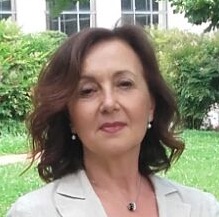Studying at the University of Verona
Here you can find information on the organisational aspects of the Programme, lecture timetables, learning activities and useful contact details for your time at the University, from enrolment to graduation.
Academic calendar
The academic calendar shows the deadlines and scheduled events that are relevant to students, teaching and technical-administrative staff of the University. Public holidays and University closures are also indicated. The academic year normally begins on 1 October each year and ends on 30 September of the following year.
Course calendar
The Academic Calendar sets out the degree programme lecture and exam timetables, as well as the relevant university closure dates..
| Period | From | To |
|---|---|---|
| Sem. 1A | Sep 21, 2020 | Oct 31, 2020 |
| Sem. 1B | Nov 9, 2020 | Jan 9, 2021 |
| Sem. 2A | Feb 15, 2021 | Apr 1, 2021 |
| Sem. 2B | Apr 14, 2021 | May 29, 2021 |
| Session | From | To |
|---|---|---|
| Sessione d'esame invernale | Jan 14, 2021 | Feb 13, 2021 |
| Sessione d'esame estiva | Jun 7, 2021 | Jul 24, 2021 |
| Sessione d'esame autunnale | Aug 23, 2021 | Sep 18, 2021 |
| Session | From | To |
|---|---|---|
| Sessione di laurea estiva | Jul 5, 2021 | Jul 10, 2021 |
| Sessione di laurea autunnale | Nov 8, 2021 | Nov 13, 2021 |
| Sessione di laurea invernale | Mar 28, 2022 | Apr 1, 2022 |
| Period | From | To |
|---|---|---|
| Festa di Ognissanti | Nov 1, 2020 | Nov 1, 2020 |
| Festa dell'Immacolata | Dec 8, 2020 | Dec 8, 2020 |
| Vacanze di Natale | Dec 24, 2020 | Jan 6, 2021 |
| Vacanze di Pasqua | Apr 2, 2021 | Apr 6, 2021 |
| Festa della liberazione | Apr 25, 2021 | Apr 25, 2021 |
| Festa del lavoro | May 1, 2021 | May 1, 2021 |
| Festa del Santo Patrono | May 21, 2021 | May 21, 2021 |
| Festa della Repubblica | Jun 2, 2021 | Jun 2, 2021 |
| Vacanze estive | Aug 9, 2021 | Aug 15, 2021 |
Exam calendar
Exam dates and rounds are managed by the relevant Humanistic Studies Teaching and Student Services Unit.
To view all the exam sessions available, please use the Exam dashboard on ESSE3.
If you forgot your login details or have problems logging in, please contact the relevant IT HelpDesk, or check the login details recovery web page.
Should you have any doubts or questions, please check the Enrollment FAQs
Academic staff
 cristina.bertazzoni@univr.it
cristina.bertazzoni@univr.it
 andrea.ghidini@univr.it
andrea.ghidini@univr.it
 ilaria.mussini@univr.it
ilaria.mussini@univr.it
 stefania.pontrandolfo@univr.it
stefania.pontrandolfo@univr.it
 marco.ubbiali@univr.it
marco.ubbiali@univr.it
Study Plan
The Study Plan includes all modules, teaching and learning activities that each student will need to undertake during their time at the University.
Please select your Study Plan based on your enrollment year.
1° Year
| Modules | Credits | TAF | SSD |
|---|
2° Year activated in the A.Y. 2021/2022
| Modules | Credits | TAF | SSD |
|---|
| Modules | Credits | TAF | SSD |
|---|
| Modules | Credits | TAF | SSD |
|---|
| Modules | Credits | TAF | SSD |
|---|
Legend | Type of training activity (TTA)
TAF (Type of Educational Activity) All courses and activities are classified into different types of educational activities, indicated by a letter.
Dynamic Psychology (2020/2021)
Teaching code
4S008177
Teacher
Coordinator
Credits
6
Language
Italian
Scientific Disciplinary Sector (SSD)
M-PSI/07 - DYNAMIC PSYCHOLOGY
Period
Sem. 2A dal Feb 15, 2021 al Apr 1, 2021.
Learning outcomes
Knowledge and understanding 1. To introduce students to the study of motivation and emotions as psychological functions regulating human behaviour and improving participation. 2. To develop in the student the knowledge and understanding of those factors that facilitate or hinder the empathic process in terms of the foundation of relationships that promote motivation and well-being. Applying knowledge and understanding 1. To develop in the student the ability to identify the motivational factors that elicit individual behavior and choices, taking into account the context (relational, group, organizational) in which the motivations and behaviours are developed. 2. To develop in the student the skill to identify potential strategies for promoting and sustaining motivation in various contexts (learning and not learning contexts). 3. To develop in the student the skill to identify the different forms of empathy, those factors that are related to empathy and that improve relationships, those that inhibit the process or that can hinder the relationship.
Program
Course topics:
Dynamic Psychology and human motivation
Personality and motivational systems
Biological and cultural aspects of motivation.
The classification of motivation
Needs and the theories of needs.
Goals, the perceptions of competence, making decisions and choices.
Extrinsic motivation, intrinsic motivation and the degrees of autonomy in motivation.
Emotions and motivation as interdependent concepts.
Affects and affective phenomena
Emotional expressions and their communicative function
Basic concepts related to emotion regulation processes
Empathy: multi-dimensionality of the construct and the various forms of empathy
Texts:
1. Gambini P., Introduzione alla Psicologia dinamica. Volume primo: I processi dinamici (Seconda Edizione), F. Angeli, Milano, 2006 (chapters 2, 3, 7).
2. Moè A., La motivazione. Teorie e processi - Nuova edizione, Il Mulino, Bologna, 2020.
3. Meneghini A.M. (2010). Sentire e condividere. Componenti psicologiche e correlati biologici dell’empatia, Firenze: SEID (chapters 1, 2, 3, 4, 5, 6, 7, 8).
| Author | Title | Publishing house | Year | ISBN | Notes |
|---|---|---|---|---|---|
| Gambini P. | Introduzione alla psicologia. Vol. I. I processi dinamici (Edizione 2) | F Angeli | 2006 | 9788846496072 | |
| Moè A. | La motivazione. Teorie e processi - Nuova edizione | Il Mulino | 2020 | 978-88-15-29026-7 | |
| Meneghini A.M. | Sentire e condividere. Componenti psicologiche e correlati biologici dell'empatia | SEID | 2010 | 8889473150 |
Examination Methods
Oral exam. The aim of the questions is to assess the students’ knowledge of the subjects described in the books/chapters listed in the syllabus. The final mark will be expressed in thirtieths. The assessment methods and criteria will be the same for attending and non-attending students.
Type D and Type F activities
Modules not yet included
Career prospects
Module/Programme news
News for students
There you will find information, resources and services useful during your time at the University (Student’s exam record, your study plan on ESSE3, Distance Learning courses, university email account, office forms, administrative procedures, etc.). You can log into MyUnivr with your GIA login details: only in this way will you be able to receive notification of all the notices from your teachers and your secretariat via email and soon also via the Univr app.
Student mentoring
Graduation
Documents
| Title | Info File |
|---|---|
|
|
pdf, it, 99 KB, 13/10/23 |
|
|
pdf, it, 101 KB, 10/04/24 |
List of theses and work experience proposals
| theses proposals | Research area |
|---|---|
| Psicoanalisi | Psychology - Psychology, Psychoanalysis |
Gestione carriere
Linguistic training CLA
Practical information for students
Documents
| Title | Info File |
|---|---|
|
|
pdf, it, 325 KB, 02/05/23 |
|
|
pdf, it, 212 KB, 02/05/23 |
|
|
pdf, it, 131 KB, 02/05/23 |
Stage e Tirocini
Per le altre attività formative (crediti F) sono previsti 9 cfu (pari a 225 ore) da acquisire solamente attraverso l’attività di tirocinio obbligatoria, a sua volta suddivisa in:
- tirocinio indiretto (1 cfu: 25 ore di frequenza obbligatoria in università per il 75%) in preparazione dell’attività formativa sul campo;
- tirocinio diretto (8 cfu), da svolgersi presso enti convenzionati.
L’ordinamento didattico della LM in Scienze pedagogiche prevede che il tirocinio indiretto a frequenza obbligatoria si svolga in università per il 75% nel secondo anno (1 CFU: 25 ore).
Il tirocinio indiretto consiste in un accompagnamento iniziale delle/degli studenti da parte dei tutor attraverso un percorso di formazione della durata di 25 ore.
La finalità di questo percorso è quella di preparare le/gli studenti alla particolare forma di apprendimento costituita dal tirocinio, dotandoli di conoscenze e strumenti adeguati a osservare, comprendere e rielaborare criticamente l’esperienza di tirocinio nei servizi educativi e ad affrontare il tirocinio negli enti con metodo e consapevolezza.
Il percorso, da attuare in gruppi da 20-25 persone sotto la supervisione di un tutor proveniente dal mondo professionale di educatori e pedagogisti, risponde alle esigenze costantemente espresse sia dalle/dagli studenti stessi sia dalle parti sociali che dai referenti degli enti convenzionati.
Nuove Linee Guida per il tirocinio di Scienze pedagogiche.
- Tutte le informazioni in merito agli stage per futuri studenti sono disponibili alla pagina Stage e tirocini.
- Tutte le informazioni in merito agli stage per studenti iscritti sono pubblicate in MyUnivr - come fare per - stage e tirocini.
- Tutte le informazioni in merito agli stage per le aziende sono disponili alla pagina Stage e tirocini per azienze.


 045-802-8150
045-802-8150

















